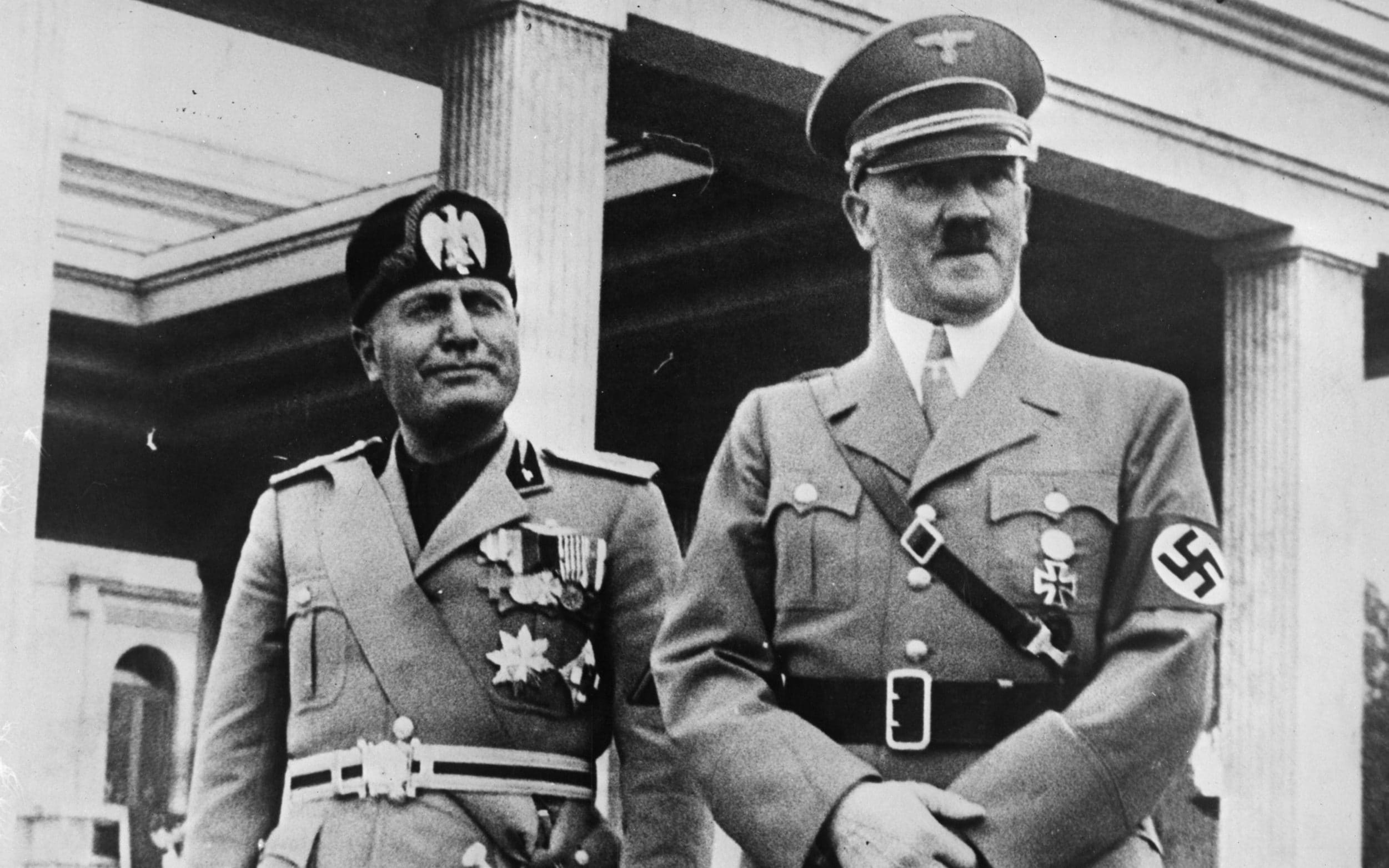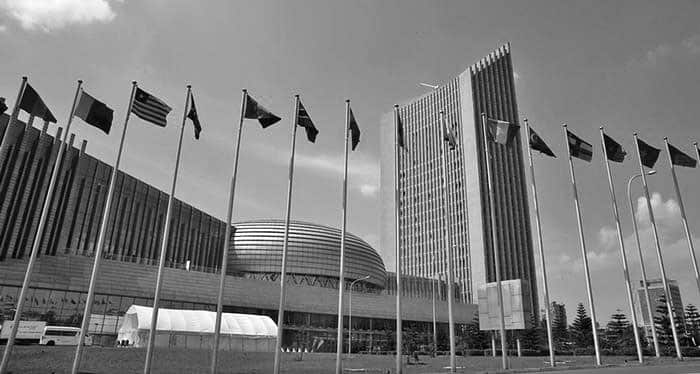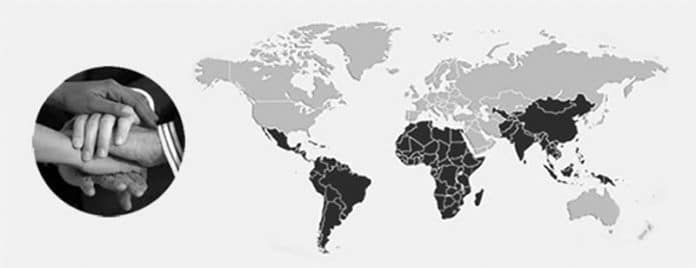Speech by Mwalimu Julius K. Nyerere Chairman of the South Center, at the International Conference on Solidarity in Southern Havana, Cuba: 12 January 1996
South South Cooperation as a Way to Strengthen Solidarity Ties Among Third World Countries, Cuba, 1996
Comrade Chairman: Gentlemen; Friends
I am pleased to be with you today as we celebrate the 30th anniversary of the founding of the Solidarity of African, Asian and Latin Americans Organization, while at the same time putting the future of the South for the next century under considerations. I believe we are doing this, confident that the fate of our countries will depend on our ability to understand how the world is going, as well as what steps we are taking in the fight against poverty, injustice, and environmental degradation.
Comrade Chairman: Solidarity between developing countries and the motto of this conference is a political concept. To some extent, this assumption already exists. For decades after the failure of international action, this concept has continued to exist as a sentiment among third world peoples. The poor have compassion for the poor everywhere, the weak and the oppressed feel sorry for their fellow human beings who are in a similar situation elsewhere. Those ruled by colonialism either directly or indirectly – are uniting in sadness with other countries that seem to be in danger of their governments being ruled by foreign nations. Even the most desperate governments among us do not have to think twice before joining the developed world in taking action against the developing world.
Solidarity
One example shows the sense of solidarity that is so prominent among the people of the host country. Few people from developing countries can be skeptical of Cuba’s popularity, with its leader Fidel Castro. On the one hand, this is due to Fidel’s personality of charisma. But I believe another fundamental reason is due to the history of the Cuban revolution which is an example of unlimited courage in defending the right of a small country to determine and adhere to its policies aimed at benefiting the people.
Regardless of its limitations, Cuba represents the right of ordinary people in health, education, and a standard of living. People around the world, even in developed countries, agree with the courageous stand taken to ensure that this right is implemented in Cuba even after more than three decades of sanctions, military operations, and international attempts to suppress the legitimacy of the Cuban revolution.
The presence of a sense of solidarity, however, is not a major factor in developing countries besieged by powerful neighboring countries.

This solidarity requires action to be taken, not just emotional support. Political, diplomatic, and sometimes economically cohesive, needs to be demonstrated practically by or through the governments of developing countries, or by individual countries as a whole. And this kind of government solidarity measures are still very much self-evident, they take a long time to succeed, and sometimes they are frustrated by its absence.
This cannot be surprising or disappointing. It is a matter of making our countries develop leadership that has initiated development projects that were necessary, or that fought the scourge of famine and other effects of the economic situation, and give more priority to the living conditions of their people and their countries. However, when powerful countries impose sanctions on them, solidarity is often seen as weaker than national interests.
We need to ask ourselves the following questions: What are the interests of developing countries that need to be taken in a cohesive manner? And how can we strengthen the capacity of developing countries to always work in line with their long-term interests?
Developing countries exist and do not have to earn a living in a world in which nations are united, and in a situation where it is impossible even for the largest nation at this time to be separated from other countries. Modern science and technology, however, have proved that it does not happen either for good or for bad. Information and communication have crossed national borders as if there were no borders at all; the financial sector operates at the international level without any authority to regulate it; production also turns out to be global, with diseases spreading due to the movement and migration of people from one nation to another. But the most important thing, is the fact that the world depends on the same environment; rising temperatures and damage to the things we depend on can be caused by the actions taken by any country.
Although all of this is true, it is still not true! This world is still too divided. There is a wide range of diversity in the balance of power distribution between developed countries in the North and developing countries in the South. Thus in all the important matters of the world concerning the economy, the military and the environment also the political, power and operational sectors are carried out by the Northern states. In addition, the North has generally learned to work together in implementing and protecting their interests in the international arena as well as in consolidating their powers. This unity and solidarity makes them stronger.
The end of the Cold War has led to the division of the world into a strong North and a weak South. It has also highlighted the southern limitations against Northern pressures. This means that, for the South South Cooperation, it is no longer possible to unite with a Northern group that can protect them against possible evils on the East or West side or against claims. So it is not surprising at present that many developing countries have decided to stay close to international communities by adhering to the principles of politics, economics, or social structures regardless of their current situation and culture. With this separation, few countries have successfully defended themselves against pressure.

The solidarity and cooperation of the third world would at least reduce this kind of vulnerability. This is due to the fact that Northern countries have the ability to terminate their relations with a country or a small group of Southern countries whenever they feel like doing so, but they would find it difficult to terminate their relations with a large group of Southern countries.
Setting Up and Growing the South South Cooperation
Building the South South cooperation can increase and strengthen the capacity of the South to work for its long-term interests as well as to protect its true independence. Lack of cooperation has created a problem for these countries to face pressure from the North, this is due to developing countries becoming increasingly dependent on North-South trade, professionals, and capital.
It is only when trade and other forms of direct cooperation between the Southern states become as important in their economies as in their relations with the great Northern nations, then the great deliberate or unfortunate damage done by the North states against these countries will diminish. However the South South cooperation is very important in its extent, it can set the impetus for development and accelerate success in developing countries and bring benefits to both producers and traders both north and south. First of all, the different levels of development in the South South cooperation mean that the importance of trade cooperation with the Southern countries is more important now than it was before. The implementation of South South cooperation is not new or impossible. The increase in domestic cooperation in the South was adopted as the agenda of the Bandung Conference, in 1955. Although progress has not met original expectations, some steps have been taken, especially at the lower regional levels.
ASEAN, CARICOM, MERCOSUR, and SADEC, are among the examples of highly successful partnerships, although some are more successful than others. Also at the Regional level, there are developments where communication and transportation restrictions have been resolved. SELA and the OAU have been working to promote cooperation at this level, and the UN Economic Commission has been very supportive on all three continents. Even in the difficult situation facing regional to regional trade and cooperation, progress has been made possible by the great work done by the Non Aligned Movement, in the different chapters of Group 77, and programs under the 15th group sponsorship. Also countries including Malaysia, Indonesia, Brazil, China, India and currently South Africa have taken personal steps to increase domestic trade and technical cooperation with other nations in the southern region.

The importance of South South cooperation is as great as today it has been in the past, and the potential for cooperation is enormous. Although the growth rate for the southern region as a whole has declined between 6 percent and 5 percent per year for the past three and a half decades, and major Asian economies have now managed to reach a growth rate of between 7 and 12 percent per year, The growth rates in the northern region have been declining since the 1960s, by an average of 1.7% in the first four years of the 1990s. Thus, the Northern economy is not a reliable catalyst for the growth of developing countries. At the same time, the rapidly growing Southern economies have become increasingly important in the procurement of raw materials and the sale of manufactured goods in various parts of the world. These economies have become an important engine in economic growth.
Although they are preaching about free international trade, the signs are clear that the various ways to hide the trade protection of the Northern countries may increase rather than decrease in the future. If the people of the north begin to believe that their unemployment rates are rising due to increasing the level of supply of goods from developing countries, the pressure on trade protectionism will increase.
It is also true that the principles of the Uruguay Round or WTO were not based on dialogue between developing countries. The regulations should be directed at small and weak countries, but does anyone believe that these principles are likely to be enforced voluntarily or coercively against unwanted nations like the United States or the European Union? Only a strong partnership between the South South cooperation can enable the Southern countries to protect their interests in international dialogue.
The Uruguay Round Convention at some point was a systematic agreement. This means that research will be conducted through negotiations under WTO sponsorship. In the service area, also in-depth discussions have not yet taken place. Cooperation between the southern representatives involved is still open and could increase South interests and ensure that they are considered fully in the interpretation of the performance of framework agreements as well as in international trade services.
The independence and scope of a certain level of decision-making in the selection of development options can be achieved through the integration of Southern countries and the coordination of various positions in the negotiating groups.
In this context it is very important to note that, in general, Southern negotiations in Geneva have largely brought about an understanding of the fundamental benefits of working together in dialogue. Almost all South missions involved in complex trade negotiations and other technical matters are of a low standard, and none of them can provide the necessary expertise in all committees. For example, there are about four experts working on the Tanzanian committee in Geneva, but at the same time there were 14 committees responsible for negotiations and feasibility studies under the Uruguay Round, where I have not mentioned other meetings that need representatives at UNCTAD, ILO, WIPO , WHO and other institutions. But among the South missions in Geneva, they often have at least one or two specialists in each field; if these units were to be allowed to lead negotiations on behalf of all southern countries in the relevant committees in areas where they know, the interests of developing countries could increase dramatically.
It is true that the economies of developing countries are now very different from those of the 1950s, 60s and 70s. But this does not prevent southern countries from having a single goal when it comes to key issues that are expected to emerge in international trade and trade talks, in accessing coordinated opportunities through doing business between them during initial meetings on negotiations. For example, the more advanced and less advanced developing countries may have doubts about the various sectors in international trade, but both will need to protect their interests in one sector or another, a method favored by free trade theories. In it there is an important common interest.
Discussing the problems posed by the great economic disparities between the South, is essentially insignificant compared to the great opportunities that are brought about by lucrative trade for all the countries of the South.
There is much that needs to be done in the areas of improved transportation and integration of communication within the Southern Hemisphere; These improvements are difficult to implement without governments action or even participation. There is a lack of information about the markets and capital that is available within the Southern Hemisphere, and this situation makes it difficult to access the required support for South producers and traders.
There are many areas that need decision and action by the governments of the South if real and internal cooperation in the South is really intended to be achieved quickly. Let me give you one specific example, which is the Global System Trade Preferences between developing countries that came into effect in 1989 with a total of 40 member states; under these plans matters relating to tariff barriers, non-tariffs and direct commercial measures between one product and another were discussed among members of developing countries. The second round of negotiations is currently under way, and all Southern countries can now participate if the governments of those countries decide.
This means no more talks about sub regional economic cooperation communities and other organizations that are already fully operational and others that are being launched. This is also the role and function of governments; under governments’ sponsorship there has been significant success resulting from trade partnerships between the governments and private institutions, with many trade barriers removed and joint production established. The central banks of two or more participating countries may co-operate in securing payments. Banks involved in the import or export business, such as the one established in Africa with the support of the African Development Bank, assist in successful trade.
Comrade Chairman: So far I have mainly focused on South South cooperation in trade; but I must say that although trade cooperation is the right way to create a wider interest among the South, it is not the only way. And yet, its growth requires support and motivation from other types of cooperation.
Our people and the groups that operate in our countries, need to get to know each other, and have more understanding among themselves. SITIDEC (The South Investment, Trade and Technology Data Exchange Centre) set up by a group of 15 countries can be an important source of business information, but it cannot be a cultural alternative, government structure, production base, labor protection, or Geography and basic demography for other Southern countries. The exchange of executives from a body that oversees trade, industry, and agriculture, trade unions and cooperatives, starting with education and health leaders as well as representatives, and NGOs and cultural groups (I’m not talking about sports groups) may be highly important in spreading awareness of southern countries in the southern region. While it is good for students in schools and colleges to learn about the history and geography of the countries that ruled us or the United States, it is also important for young Africans to read certain things about Asian or Latin American countries and vice versa.
Realistically and most importantly when it comes to the future of all the countries of the South, there is a need for cooperation between the countries of the South in scientific and technical research as well as development of all kinds and at all levels. Because scientific research takes a long time and immediate results are very rare, but without research our production and our ability to exchange information will no doubt today or tomorrow pressured by new scientific advances elsewhere. It is also expensive to do scientific research and develop it. Joining or merging research units or programs, between different countries focusing on different areas or fields, can help bring about the best use of the limited resources that poor countries can allocate on scientific research and development. There are such institutions that have begun to function now, but they are very few and do not receive the attention and priority from the respective governments where necessary to increase their quality in helping the people and economies of southern countries.
Collaboration in Scientific and Technical Research as well as other joint efforts of the South South cooperation is possible and needs to be carefully planned at all levels, from sub-regional, regional and plus inter-regions. Every Southern country will have something to contribute to and benefit from one of the various activities required in research. Those small and highly developed countries among developing countries will be able to contribute on a small scale, and not necessarily at the highest quality. Cuba and Colombia are both small countries, and with their limited resources together they have been able to lead the world in vaccines against hepatitis and malaria.
Deliberate intergovernmental efforts in building partnerships via the South South cooperation, the business sector, trade unions, and the general public are very very important and can deliver positive results now than ever before.
In this way, our mutual economic, social and political interests will increase, and our solidarity will be stronger. Our countries will be able to stand up against economic fraud, and the temptation to separate us from the so-called “special agreements”, which are sometimes offered as an alternative to solidarity. This will enable us to work together to create a better environment for southern countries in programs that help bring development to every southern country (Tip: explore “Growth and Sustainable Development Challenges” to dive in further on the challenges facing Southern countries). Solidarity in the South can be a major factor in reaching decisions on economic and international politics, and in efforts to build a just and peaceful world.
Thank you!
For more Nyerere speeches click here!
































